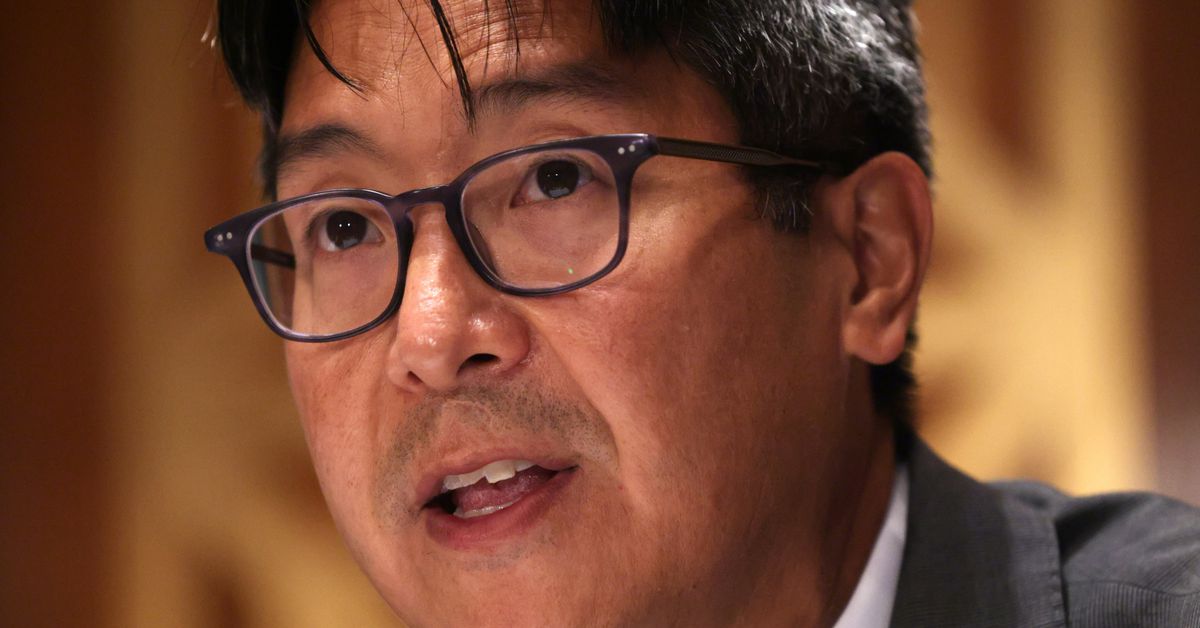Regulating stablecoin issuers like banks could encourage innovation in the crypto industry, according to top U.S. banking regulator Michael Hsu.
Speaking at an event on Thursday, Hsu – the acting comptroller of the Office of the Comptroller of the Currency (OCC) – told attendees that increased regulations for the stablecoin industry could also make innovations longer-lasting.
“While innovation thrives in uncertain environments, solid foundations can help,” Hsu said. “Especially when it comes to money and trust.”
As the stablecoin market continues to grow, surpassing $150 billion last year, lawmakers and regulators are becoming more concerned about the ability to regulate the booming industry and the contagion risks from a potential run on stablecoin issuers in the event of a market collapse.
“The growth and mainstreaming of crypto means that a stablecoin run would not just impact those directly invested in it,” Hsu said. “There would be collateral damage. And the potential scope of that damage will continue to grow as long as crypto expands.”
Hsu continued, adding:
“Fortunately, we have an effective tool to mitigate run risk: bank regulation.”
Hsu’s call to impose bank-like regulations on stablecoin issuers echoes similar recommendations made by the President’s Working Group on Financial Markets (PWG) in its stablecoin report published in November. The PWG’s report urged Congress to enact a law that would treat stablecoin issuers like banks – though the report didn’t go into detail about how that would be done – a recommendation that has been met with bipartisan pushback on Capitol Hill.
Hsu’s sudden fondness for crypto innovation is a departure from comments he made on CryptoX TV last November, when he said that constant innovation in the stablecoin sector was “not what you want.”
“You want your money to be stable and reliable, you want it to be there in good times and bad times and not have to think about it,” Hsu said on CryptoX TV. “If you innovate too much in that space, you’re going to get a wide range of outcomes that some of which are not going to be good.”
Hsu’s tenure as acting comptroller of the OCC has been marked by a more ambivalent attitude toward cryptocurrencies than that of his predecessor, Brian Brooks, under whose leadership the bank regulator issued guidance aimed at bringing the crypto industry into the fold of the greater financial system.
When Hsu took office last May, he ordered a review of all the crypto-related guidance issued by the OCC under Brooks.




